
You simply attach the TC between the camera body and the lens and you are good to go. There is yet another advantage which most users are not fully aware of. When you attach a TC to any lens, the minimum focus distance does not change but the magnification does. This means that for the same minimum focusing distance, you get a much larger image; the image size will of course not match that of a true macro lens, but you get an image that is much larger than what you would have obtained without the TC. TCs are available as 1.4x, 1.7x, and 2x. A 1.4x increases the focal length by a factor of 1.4; a 1.7x increases the focal length by a factor of 1.7, while a 2x doubles the focal length of the lens it is attached to. There used to be a manufacturer supplying a 3x TC, but I have not seen any in recent years. Do keep in mind that TCs cannot be attached to each and every lens. Please check your User Manual or check with the manufacturer of the lens. TCs often have projecting lens elements on the side that mounts the lens and some lenses (usually non- telephoto lenses) have their rear elements very close to the lens mount. Trying to mount these together must be avoided as they will interfere and if you force the issue, you will definitely damage the lens elements on both the sides. The only way to be sure is to check the user manuals to see which combinations are permitted and which are not. Of course there is no such thing as a free meal in life! A downside to using TCs is that the amount of light reaching the imaging sensor is reduced. This can:
• Darken the viewfinder, making it a bit difficult to view the subject.
• Compromise autofocus speed and accuracy.
• Cause loss in image quality.
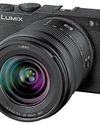
SELECTING THE RIGHT SYSTEM
Buying a new mirrorless camera can be a daunting decision. Not only are cameras very expensive, but also choosing a brand with an exclusive mount can mean locking yourself into a system.

Capturing Momenta Folding Boundaries
With the Pixel 9 Pro Fold, Google takes cues from its impressive line-up of Pixel smartphones and resolves some of the design oddities we’ve seen on foldable smartphones from more seasoned competitors in the category.
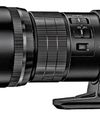
Super Sharp
Smart Photography reviewed the OM System OM 1 Mark II camera last month. If you haven’t read the review, please do so.
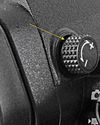
HIDDEN FEATURES OF YOUR CAMERA
Ashok Kandimalla has been in the photographic field for over three decades and has extensive experience in both film and digital photography.

Hahnemühle Hemp Paper at Olympics & Paralympics 2024
As the 2024 Paris Olympics and Paralympics embraced sustainability, Hahnemühle’s Digital FineArt Hemp paper played a central role as the exclusive medium for the official Premium Posters. This eco-friendly, plant-based paper aligned with the Games’ commitment to sustainability and delivered exceptional print quality. From limited-edition posters to the Artistic Posters Programme, Hahnemühle’s innovative use of hemp fibres showcased how high-value print products continue to thrive in a rapidly digitizing world.

The Lasting Power of Print: Preserving Memories Through Photobooks
I am a software engineer turned photographer, and my journey in photography has been a constant companion throughout my life.

The Wildlife of Eastern Mongolian Steppe
Mohit Ghatak is an engineer and a management postgraduate and works as a regional business leader in Singapore.

Abhishek Dey's Photo World
I identify myself more as a travel photographer than a purely landscape photographer.
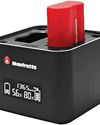
Manfrotto lithium ion batteries for cameras
Manfrotto has introduced its new MKII lithium-ion batteries, featuring a higher capacity of 2400mAh for Nikon, Sony, Canon, Fuji, and OM System cameras.
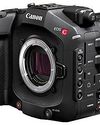
Canon to have EOS C80 with enhanced features
Canon announced the launch of its latest Cinema EOS camera, the EOS C80, just ahead of the International Broadcasting Convention (IBC) 2024.